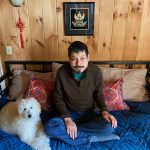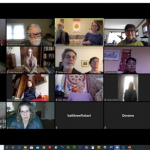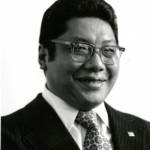Thursday
Buddhism, Psychedelic-Assisted Therapy and the Spiritual Path: An Interview with Dr. Sara Lewis
by Jillian Johnson
Register for the Buddhism, Psychedelic-Assisted Therapy and the Spiritual Path One-Day Retreat
One of the five main precepts in Buddhism is to avoid intoxicants, and it is clear that the use of substances can lead to spiritual bypassing. Yet many renowned practitioners in the West have talked openly about psychedelics as a catalyst to spiritual awakening that led them to the Dharma. Today, we sit down with Dr. Sara Lewis, co-founder of the Memoru Center for Visionary Healing Arts in Boulder, Colorado, and the Center for Psychedelic Studies at Naropa University, where she also served as an associate professor, and author of Spacious Minds: Trauma and Resilience in Tibetan Buddhism, to discuss the use of psychedelics in therapy and along one’s spiritual journey. In this interview, Sara provides us with her personal and professional perspective while considering how such practices may intersect, or not, with the Buddhist path.
Dr. Sara Lewis will hold an online mini-retreat, Buddhism, Psychedelic-Assisted Therapy and the Spiritual Path, through Shambhala Online on July 20, 2025. Click here to learn more and to register.
Jillian: Hi Dr. Lewis, thank you so much for being here with us today to share more about your work and knowledge in the field of psychotherapy and the implementation of psychedelics in mental health settings and spiritual pursuits.
Would you please tell us a little bit about your ‘why’ behind your work in mental health and how it expanded into the area of psychedelic-assisted therapy?
Dr. Lewis: I have long been interested in the mind: concepts of mind, the beauty and the challenges of the mind, and what it means to be human. As an anthropologist of religion and a psychotherapist, I am also deeply interested in how our connection to the divine changes across culture. In one way or another, I have been involved in the field of psychedelic studies for the last twenty years, yet it is more recent that psychedelic therapy has become more mainstream. As a Buddhist, I continue to see my clinical work as a skillful means to work with suffering in the world.
Jillian: How fascinating. We heard you opened a new clinic? Congratulations and please tell us more!
Dr. Lewis: Yes! Memoru Center for Visionary Healing Arts is a contemplative-based psychedelic training institute and community clinic where we offer legal psychedelic therapy. We can accept out of state clients who wish to travel to Colorado for a psilocybin experience. The Memoru clinic has a strong connection to Naropa University, where most of the cofounders have either worked as faculty or completed their studies.
Jillian: That’s very exciting, congratulations again! Speaking of legal psychedelic therapy, what do you feel are the current social and political climates surrounding the utilization of substances (primarily psilocybin and MDMA) in controlled mental health and spiritual settings? Are you noticing more or less acceptance in your typical day-to-day professional and personal interactions than in recent years?
Dr. Lewis: In general, there is a lot of interest and excitement for the therapeutic use of psychedelics. Many people understand that among veterans, abuse survivors, and others with PTSD, our standard treatments often fall short. As well, there is deep potential for plant medicines and psychedelics for those navigating the end of life. At Memoru, we will have a family program that aims to work with entire families–this might be when one person is at the end-of-life, navigating the post-partum period after birth, couples work, or a veteran returning home. When psychedelic care is done in a way that is slow, intentional and safe, I think there is significant support. At the same time, our basic health care infrastructure is not really set up to easily make this type of work accessible. Psychedelics do not fit easily into a capitalist system and without sounding too conspiratorial, the global Big Pharma system has many reasons to hinder the kind of paradigm shift many of us interested in psychedelic-assisted therapy are hoping for. Still, I believe that most of us yearn for change. With psilocybin now legal in various capacities in Oregon, Colorado and most recently, New Mexico, I believe in the next 5-10 years we will see a significant shift in accessibility of these modalities in North America and around the globe.
Jillian: Thank you so much for this thoughtful response, Sara. It is comforting to know that all areas of support are being explored for those seeking treatment and their families. Do you feel momentum and public support will eventually result in the integration of psychedelics into mainstream healthcare?
Dr. Lewis: Absolutely. And this could go the other direction as well if we do not take seriously the ethical responsibility to work with these medicines in a safe way. Many cultures across the world understand plant medicines to be living beings with sentience. They shouldn’t be “taken” in an extractive way. If we can relate with the cultures ethically who are stewards of these medicines, and collaborate and learn from them, I think we may have good results. For society as a whole to open up to them, I think we are in a critical period of needing to demonstrate that as a human society we can be trusted with these powerful agents. It’s up to us! But I feel the plants and fungi also want to help.
Jillian: I love your statement “…I feel the pants and fungi also want to help” and the care you show towards our Plantae and Fungi kingdoms. Have you noticed an increase in the number of patients and clients willing to consider psychedelics as part of their treatment plan for depression, anxiety, addiction, PTSD, etc.?
Dr. Lewis: Yes, very much so. Many people have earnestly tried conventional therapies without much relief. There are also many people seeking to work with suffering within the human condition in a way that honors and deepens their spiritual path. So there’s sort of a question about whether the work is “mental health work,” “spiritual work,” or something else. There is also a lot of joy, beauty and connection, something that may not be fully honored in a traditional treatment plan that tends to focus rather narrowly on the eradication of symptoms.
Jillian: It sounds like a very integrative approach that is catered to each individual’s unique needs and requirements, which is still lacking in many areas of healthcare. Would you tell us more about a situation(s) where the assistance of psychedelics, in a therapeutic application, aided a client in a breakthrough (mental, emotional and/or spiritual) that may not have occurred, or may have taken longer to occur, with more traditional mental health practices? Are you able to expand on the experience, at least from your perspective, and how that felt?
Dr. Lewis: I have had so many clients with intergenerational and ancestral experiences, even when they weren’t necessarily seeking that out. This has looked like deeply experiencing and seeing the ways that an ancestral burden has been passed down through the ages, visitations from elders who have passed, and sometimes a deep experience of connection and homecoming into one’s ancestral lineage. This happens so frequently that I myself, have embarked on a formal process of Ancestral Lineage Healing over the past year to better learn to work with my own spiritual lines. We will have more on this in the mini-retreat!
Jillian: This sounds not only incredibly interesting, but heart-warming as well. What a beautiful experience for both you and your clients. I am intrigued to hear more at the mini-retreat! In which situation(s) do you recommend someone not take psychedelics or partake in psychedelic-assisted therapy if it is a path they are interested in pursuing for their mental health and/or spiritual journey?
Dr. Lewis: These agents can be very powerful and it’s important to know if it’s the right time. I receive many referrals for people who have had negative even traumatic experiences resulting from psychedelics. Beyond contraindicated conditions like psychosis and mania (though even those who have these histories may be able to work in psychedelics under certain conditions), I wouldn’t recommend jumping into working with them if things aren’t stable enough to be able to accommodate potentially big and sometimes disruptive shifts. Sometimes these medicines work through disruption and dissolving: this could be to harmful patterns, misperceptions, ego-clinging, itself, or even the dissolving of relationships, career or other major disruptions.
Jillian: This is a very strong point to consider. Thank you for mentioning ‘being ready’ for shifts. While it is often said “The only constant change,” it is important to remember to be as grounded as possible before inviting a powerful catalyst for said change. What would you recommend as some of the “should” and “should nots” before holding a psychedelic session in terms of choosing an appropriate environment, monitoring one’s current mental state, integrating other practitioners and/or professionals, etc.? In a sense, what would you recommend in terms of setting yourself up for an enlightening experience?
Dr. Lewis: Most people do not need to work with a psychedelic therapist or clinician to have a safe and meaningful experience. This was recognized in the state of Colorado that has approved personal use of psilocybin mushrooms for anyone 21 years and over. Colorado also allows for individuals to embark on training as facilitators who do not hold a clinical license, again recognizing that many people can be trained to hold space for someone else ethically and with care. However, if the intention is really to engage in therapeutic work, it would be important to seek out a trained and licensed clinician. Sometimes it can be hard to really discern whether the work is “therapeutic” or whether it is “spiritual.” But this isn’t a new problem. Many cultures around the world do not separate the paths of healing and spirituality. What is most important is to feel that the setting and the practitioner is slow, intentional, and rooted in some kind of practice lineage. I would not get involved with anyone who doesn’t seem to have any mentors, elders, or community of accountability.
Jillian: Very true, consistent and quality integrative care that takes into account physical, mental, spiritual, and emotional health of an individual is a hurdle that seems to continually appear, at least in American culture. On a more casual note, if you were talking freely (perhaps in a bar) to a captivated audience, what would your elevator pitch be when introducing a metaphysical discussion on the topic of psychedelics in therapy or on one’s spiritual journey?
Dr. Lewis: I probably wouldn’t make one. A person really needs to feel the call, so to speak, on their own! If you listen and hear the call, however, many of us all across the globe would love nothing more than to dive into that conversation!
Jillian: What a conscientious approach. Wait for the invitation. And now for our final interview question, what has the use of psychedelics done for your personal spiritual growth? Do you have any stories you’re willing to share with us?
Dr. Lewis: Yes, but I will save these for the mini-retreat. Hope you can join!
Thank you, Sara, we’re looking forward to it! Myself and Shambhala Online thank you for taking the time to answer our questions about these exciting advances in patient/client care. You have touched on many dynamic aspects regarding the use of psychedelics in client care and we are eager to dive deeper on July 20!
Dr. Sara Lewis is Co-founder of Memoru Center for Visionary Healing Arts, a psychedelic clinic and training institute in Boulder, Colorado. She served as Associate Professor at Naropa University in Buddhist-Informed Counseling, where she also co-founded the Center for Psychedelic Studies. Sara is author of Spacious Minds: Trauma and Resilience in Tibetan Buddhism, an ethnographic study of mind, memory and recovery from collective trauma in the Tibetan exile community. She teaches in Shambhala on the topic of Buddhism and psychedelics, and has also served in a number of leadership roles, including a term on the Interim Shambhala Board.
Entries filed under Community Articles
Condolences for Nova Scotia – HIGHLIGHT
Photo by Gaelle Marcel on Unsplash The Shambhala Board extends our sincere condolences to the families and friends whose cherished loved ones died suddenly and violently in Nova Scotia on April 18th and 19th. We are united in our broken heartedness, even if physically separated. Kathryn Heckman, a ... continuePosted April 27, 2020 by archives-staff
Right Livelihood Arises from Raising Equestrian Windhorse – HIGHLIGHT
Craig teaching at home by Andrea D’Asaro Originally published here on the Seattle Shambhala Center Blog Right livelihood is one of the traditional ethical elements of the Buddhist eightfold path. For Shambhalians who aspire to “create enlightened society” this means sharing our inherent goodness or inner richness through our ... continuePosted April 20, 2020 by archives-staff
Tagtruk Mukpo Update – HIGHLIGHT
Taggi and Rowan, his shadow By Jim Christie, Senior Living Provider to Tagtruk Mukpo Greetings and salutations to family and friends of Taggi Mukpo. In this time of strife and sorrow through out the world, we look, and find daily all the simple blessings we have here at ... continuePosted April 13, 2020 by archives-staff
Transitioning to Zoom – HIGHLIGHT
By Craig Sargent When One Door Closes, Another Door Opens Due to COVID-19, we closed our Center in Lexington KY on March 14th. Broken hearted, we purchased a Zoom Pro account later that day, and began our transition to Zoom. We held our first Council meeting in Zoom ... continuePosted April 6, 2020 by archives-staff
Parinirvana Day 2020 Resources – HIGHLIGHT
To the Noble Sangha, We hope that each of you are well and cared for during this groundlessness. Each year on April 4th, Shambhala marks the life and passing of its founder, the Vidyadhara, the Venerable Chögyam Trungpa Rinpoche, with the commemoration of Parinirvana Day. As we approach the ... continuePosted April 2, 2020 by archives-staff
Staying Sane In Isolation During the COVID-19 Pandemic
Photo by Natalia Figueredo on Unsplash By “Jackie Writing Jackie” The number of Covid-19 cases around the world has surpassed 872,000, leading governments to effect nationwide lockdowns to reduce the level of contagion. During this time, many people are surrounded by family. One of the hardest-hit groups, however, is ... continuePosted April 2, 2020 by archives-staff
Letter from the Druk Sakyong Wangmo – HIGHLIGHT
Office of the Druk Sakyong Wangmo Dearest Community Members, During this unprecedented time of difficulty, I have been thinking about all of you and wanted to reach out. I know that we are all struggling, in many different ways. Within my own family, I see that everyone has ... continuePosted March 30, 2020 by archives-staff
Meditation and Connection in a Time of Isolation – HIGHLIGHT
Photo by Toa Heftiba on Unsplash by Gayle Van Gils I have been feeling more than a bit ungrounded and lonely….. Being forced to stay home and away from other people seems so wrong. Yet, here we are – in this together – feeling our way towards a ... continuePosted March 28, 2020 by archives-staff
What Role Can Exercise Play In Shambhala Practice? – HIGHLIGHT
Photo by Form on Unsplash By “Jackie Writing Jackie” Meditation has a key role to pay in Shambhala practice, but Buddhist belief does see a vital link between mental and physical well-being, and the Eightfold Path clearly envisions both. In a more symbolic sense, the path of Perfect Livelihood ... continuePosted March 24, 2020 by archives-staff
How to Stay Calm in the Face of Fear – HIGHLIGHT
This article was originally posted by Sarah Lipton here. Tea with a T-Rex T-Rex is roaming the earth again. Wreaking havoc, causing disruption, up-ending the status quo. This time, it’s crowned in the form of COVID-19. A global pandemic. A local disaster. From my vantage point, the greater harm is ... continuePosted March 15, 2020 by archives-staff
Being You is a Practice – HIGHLIGHT
by Kelsey Blackwell This article was originally posted here at The Marvelous Crumb Happy Lunar New Year! Year of the Rat — known for industriousness, thriftiness, diligence and positivity. That feels about right. I’m burrowing into my studies at the Strozzi Institute and gnawing on bits of wisdom that are ... continuePosted March 10, 2020 by archives-staff
Ubuntu: “I had nothing but I believed in the power of my people.” – HIGHLIGHT
Photo Credit NaomiW25 on Wikimedia Commons By Hans Kaufmann Este artículo ha sido traducido al español aqui. When I worked with children in the Shambhala Center in Vienna, stories were always an important and requested part of our meetings. During the last years they were around 10 and they manifested ... continuePosted February 17, 2020 by archives-staff
Fostering Indoor Air Quality, with Shambhala Teachings and Practice – HIGHLIGHT
By Vinicius Amano on Unsplash By “Jackie Writing Jackie” The Dalai Lama once stated that there are two major reasons leading to the current environmental crisis: ignorance, and a lack of courage to take action to solve problems. The human connection to nature is a vital part of Shambhala Buddhism ... continuePosted February 2, 2020 by archives-staff
Celebrating Your Wedding Anniversary with Shambhala Ideas and Practice – HIGHLIGHT
Photo by freestocks.org on Unsplash By “Jackie Writing Jackie” The idea of loving one’s romantic partner and celebrating their individuality can be an important component of a Shambhala life, and connected to what Yale Professor Dr. Nicholas Christakis calls the ‘social suite’. These two considerations work well together, ... continuePosted January 7, 2020 by archives-staff
Love from Auschwitz: A Bearing-Witness Retreat with the Zen Peacemakers – HIGHLIGHT
By Sophie Leger What an amazing experience this Bearing-Witness Retreat with the Zen Peacemakers turned out to be: Ninety participants from many different countries and religious backgrounds, speaking different languages – people from Sweden, Finland, Germany, Netherlands, Switzerland, Austria, Poland, Canada, US, Israel, Brazil, Columbia, Belgium, England. Some ... continuePosted December 30, 2019 by archives-staff
![]() RSS feed for the Community Articles category
RSS feed for the Community Articles category
View all posts from authors in Community Articles: jillian_johnson

























